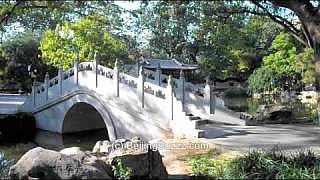 Sky Mirror Tea Card salt lake 天空之镜 茶卡盐湖, QingHai
Sky Mirror Tea Card salt lake 天空之镜 茶卡盐湖, QingHai
Related Videos
Featured Videos

|
Xiong'An is a new city on the outskirts of BeiJing.
With Lee Barrett, with JaYoe Nation ...
|

|
The small(ish) and little-known but perfectly-formed park in south west Beijing.
|

|
YinChuan, 'Silver River', lies in NingXia province, central - north China. It is located near the western bank of the upper course of the Yellow River, in the south-central section of the HeLan Shan mountains and the Ordos Desert.
Thanks to the Yellow River, YinChuan enjoys beautiful natural scenery and favorable conditions for agriculture and has long earned the fame of a "River Side City in the Northwest" and "Home to Fishes and Rice".
Around the city of about 2 million are a number of interesting cultural sites, including part of the Great Wall of China (not far from the western end-point) and grand mosques (Hui minority) and lies on a trade route from cities in the far west to the east.
Nearby are the extensive Western Xia Dynasty (1038 - 1227) Tombs, 40 kilometers to the west.
There are two pagodas in YinChuan that are part of the 'Eight Famous Sceneries of NingXia': one is the HaiBao Pagoda in the northern suburb and the other is the ChengTianSi Pagoda in the west.
Sand Lake lies about 50 kilometers north of YinChuan. Being a world of desert and a large lake, it is a place of beautiful nature and a great getaway.
The immediate plains area, intensively irrigated by a system developed as long ago as the Han dynasty (206 BC–AD 220), is very productive for agriculture.
A great film by Sticker Travel ...
|

|
LiaoNing province.
With Nadine in China ...
With Gecko Walks ...
|

|
The idea is to open up a country, peacefully or otherwise, till it is no longer working in its own interests, but rather has become a captured US puppet / vassal. Control of the media, fanning protest movements and minority tensions, proxies and pouring in big money are some of methods used.
With Brian Berletic ...
With Cyrus Janssen ...
|

|
With Blondie in China ...
With Walk East ...
|

|
石林, ShiLin County, YunNan, south China.
This area, covering around 500 square kilometers in all, lies about 90 km east of the provincial capital KunMing and is comprised of seven scenic areas featuring amazing limestone karst rock formations.
The Stone Forest began around 270 million years ago as a shallow sea. Extensive deposits of sandstone overlaid by limestone accumulated during the Permian period. Subsequent uplift of this region followed by exposure to wind and rain shaped the landscape we see today.
Filmed in Ultra HD (4K).
|

|
ChengDu is the provincial capital of SiChuan, in south west China.
The film includes the Panda Research Center, ChengDu city center, JinLi historical district, Happy Valley and more ...
|

|
The West wants no peers, only slaves.
With Ben Norton ...
Bonus film : What is the West's mindset today ? - with Michael Brenner and Neutrality Studies ...
|
Tag search ?

 Sky Mirror Tea Card salt lake 天空之镜 茶卡盐湖, QingHai
Sky Mirror Tea Card salt lake 天空之镜 茶卡盐湖, QingHai





